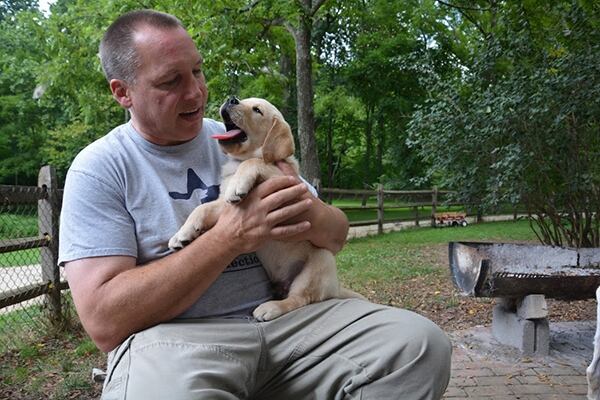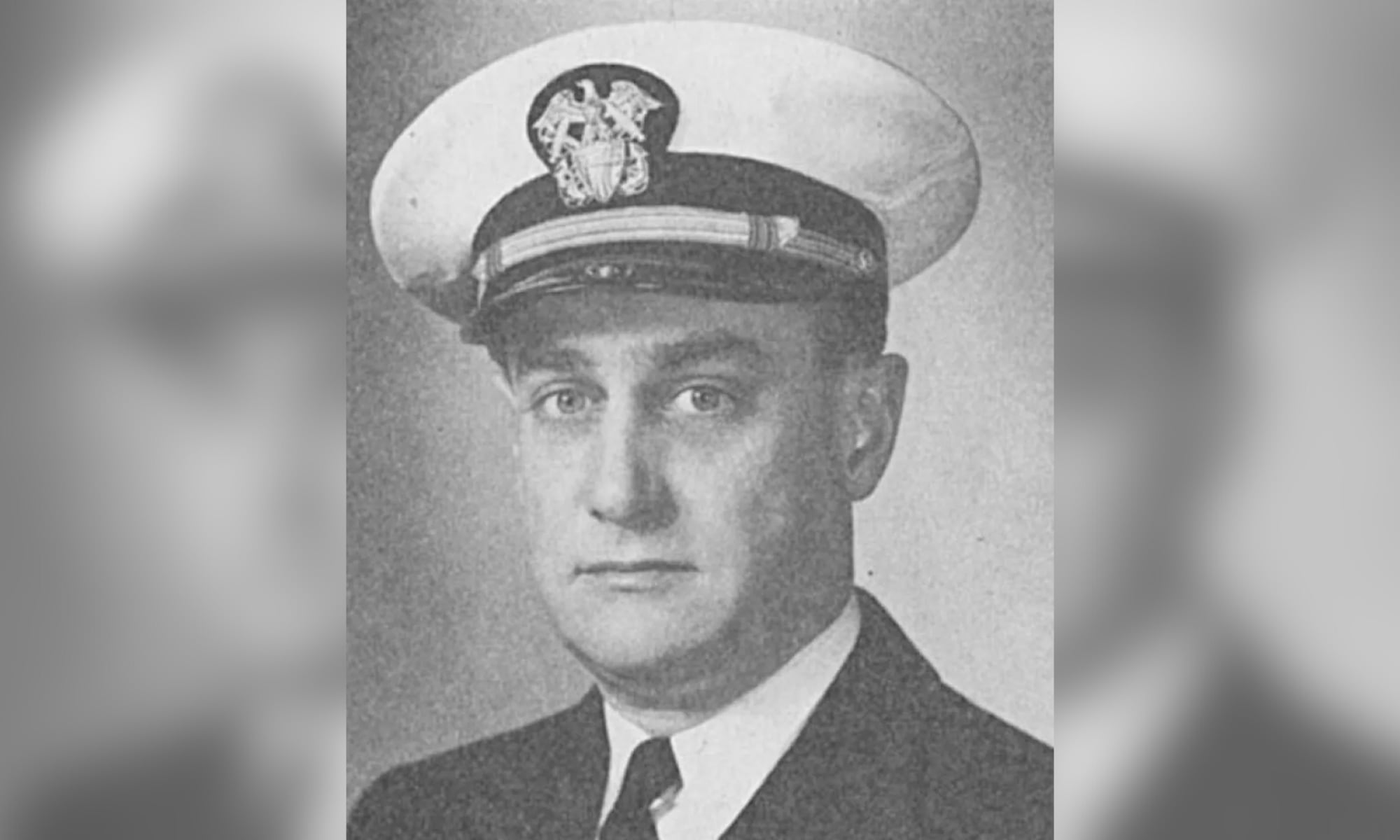Warrior Canine Connection, which pairs service dogs with wounded warriors, is looking for clarity after Walter Reed National Military Medical Center said it is reworking the contract for its therapy dog program.
On Oct. 27, Maryland-based Warrior Canine Connection was told that a stop-work order had been issued from Walter Reed, where 105 patients were interacting with dogs from the organization.
WCC trains Golden Retriever and Labrador puppies to become service and therapy dogs for veterans dealing with mental and physical trauma. The organization enlists puppy petters to help socialize the dogs when they’re young and incorporates veterans into the puppies’ training as well.
Rick Yount, WCC’s executive director, told Army Times that the organization’s contractor was issued a letter from Walter Reed saying the WCC staff and dogs had to leave their offices at Walter Reed and Fort Belvoir in Virginia immediately.
“There was no reason,” Yount said. “No details at all.”

Yount, who founded WCC in 2011 after creating a pilot program in California in 2008, said he was told there were “concerns,” but that no one from Walter Reed has elaborated on what that means.
The only concerns Yount said he can think of date back to April when someone claimed the dogs in the program were not in good health.
Following those claims, an independent veterinarian examined the 14 on-site dogs and viewed the facilities where they were housed, according to the veterinarian’s report that Yount provided to Army Times.
The overall assessment, according to the report, was that the WCC dogs were well cared for and that no major health issues were found.
“The only concerns [the veterinarian] could find was a little bit of tartar buildup,” Yount said. “Those concerns were completely addressed.”
Yount said a disgruntled former employee might have brought up accusations that weren’t true, which prompted Walter Reed to review its contract with the organization.
Although he said he couldn’t go into details because it’s a “personnel issue,” Yount said a former temporary employee was upset and began criticizing the organization — while also saying it saved his life.

The contract, which was supposed to go through 2019, affected four dog-trainer positions at Walter Reed and two with Fort Belvoir’s Warrior Transition Unit, he said. The organization is still operating out of its Healing Quarters facility in Boyds, Maryland, and at the Department of Veterans Affairs Medical Center in Menlo Park, California.
“The hospital commander made this decision, which affected 105 patients who had solid relationships with the dogs,” he said.
Sandy Dean, director of communications at Walter Reed, told Army Times that the stop-work order was issued so the facility could improve the contract.
“We’re restructuring the contract to include better performance measures and enhance oversight of patient care,” Dean said, adding that she couldn’t discuss the specifics of the new contract because it hasn’t been finalized.
“We’re working expeditiously to update the contract,” Dean said. “In the meantime, I think it’s important for folks to remember that we still have an internal dog program that provides patient care.”
Army Times asked Walter Reed exactly why the contract was being reworked, what the concerns were and if there were plans to discuss the matter with Yount. Dean said Walter Reed cannot directly communicate with Warrior Canine Connection because it is a sub-contractor, not a prime contractor.
Yount, who has been working with Walter Reed for years, said he has an amazing amount of respect for the medical center and its staff.
“But this was not handled right,” he said. “It was a knee-jerk reaction, and I don’t know what was alleged, but if someone had concerns, I would want to hear what they are and address them.”
Yount said he supports tweaking the contract to make it the best it can be.
“I’m never going to say we do everything 100 percent, but this is my baby and you’re going to potentially bid it out to some other organization without telling me why,” he said.

He encourages Walter Reed to move forward in a way that doesn’t hurt patient care.
The issue is also damaging the organization’s hard-earned reputation, he said.
“All of a sudden we have people contacting us asking what happened,” he said. “If we don’t have answers, it looks like we did something bad.”
Yount said it would be great if Walter Reed would sit down and talk to the people who are supposedly making allegations against WCC to figure out their motivation.
“I’d like to have our name cleared and be able to offer this program to wounded warriors,” he said. “There’s not a lot out there that helps, and we saw this actually worked very well.”
Yount added that working with the dogs helps troops who are hospitalized regain a sense of purpose.
Although the Walter Reed and Fort Belvoir contract connects the most veterans with the organization, Yount said WCC will continue to help other vets in the community.
“We’re going to keep helping veterans with our program and our dogs,” he said, adding that one reason dog therapy is so important is because it doesn’t rely on pharmaceuticals. “These relationships are really key to recovery.”
Charlsy is a Reporter and Engagement Manager for Military Times. Email her at cpanzino@militarytimes.com.





